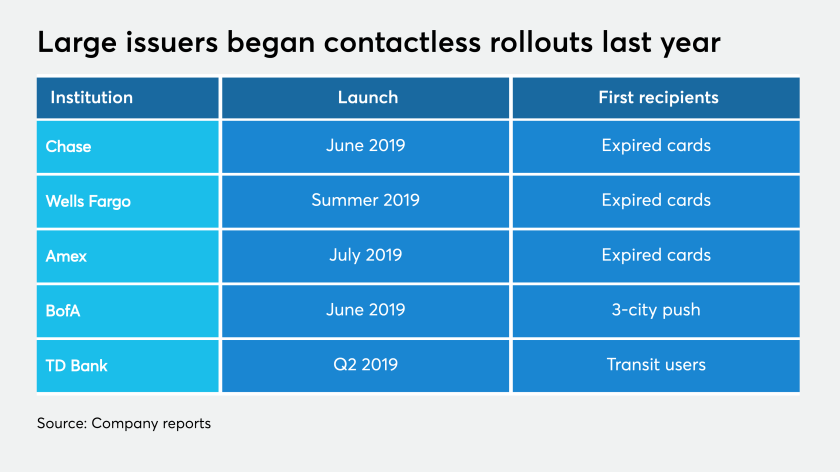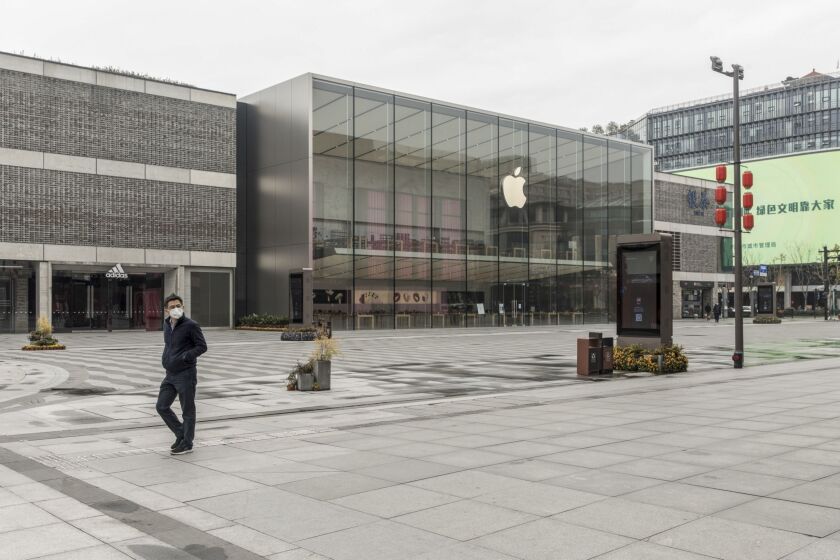Mastercard CEO Ajay Banga says he is certain that science, medicine and innovation will lead the world out of the coronavirus pandemic, but there is little indication of when that will happen.
Though NFC adoption is still somewhat patchwork in the U.S., new data suggests contactless payment transaction volume is rising during the coronavirus outbreak, giving an advantage to banks and merchants that enabled it early.
Mastercard has increased the contactless payment limit to CA$250 across Canada to provide consumers with a safer way to pay during the coronavirus pandemic.
Transit systems are suffering a dramatic loss in ridership, and must find a way to welcome back riders after the coronavirus pandemic ends, since many commuters will have canceled their monthly passes.
Growing recognition that coronavirus can survive on hard surfaces for up to 72 hours — making it riskier to use PIN pads and touchscreens at the point of sale — is causing merchants around the world to rethink payment technology, especially at supermarkets.
Contactless cards are a potential refuge for consumers who fear plastic and cash are carrying COVID-19.
Coronavirus, also called Covid-19, is wreaking havoc on the stock market, with a heightened effect on the travel industry. It could also cause a drastic change in payment habits, as consumers shift to digital channels to reduce their risk of infection from handling cash.
It’s an odd, and unwelcome, test of new retail technology that allows consumers to shop with minimal interaction with others.











